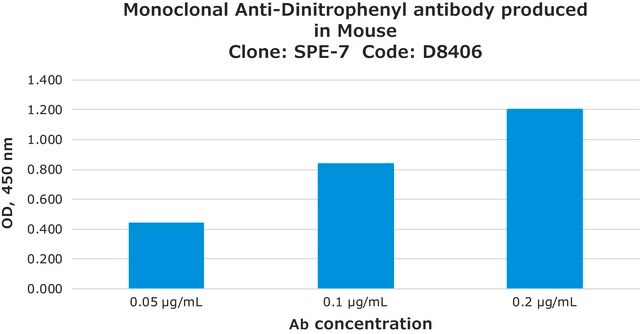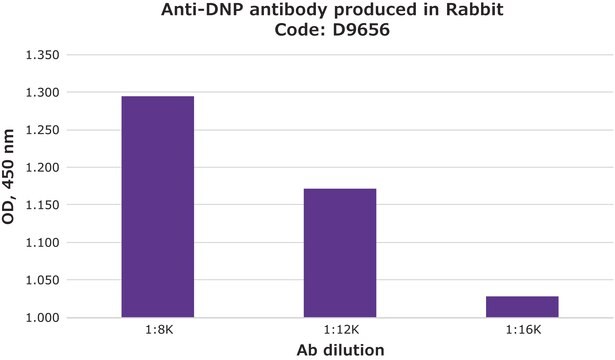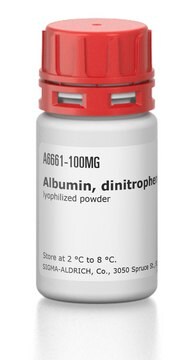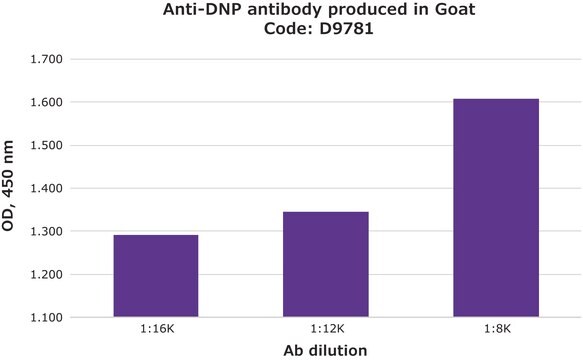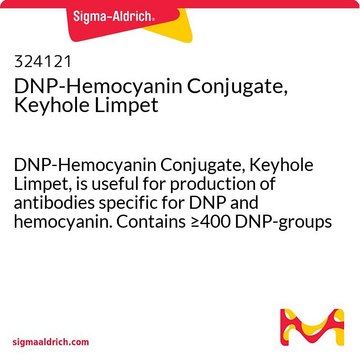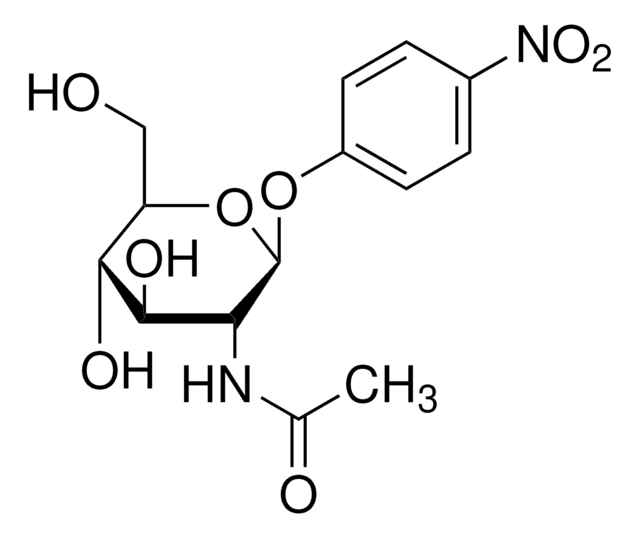A2831
Monoclonal Anti-DNP−Alkaline Phosphatase Conjugate antibody produced in mouse
clone SPE-7, purified immunoglobulin, buffered aqueous glycerol solution
Synonym(s):
Anti-Dinitrophenyl, Monoclonal Anti-DNP
About This Item
Recommended Products
biological source
mouse
Quality Level
conjugate
alkaline phosphatase conjugate
antibody form
purified immunoglobulin
antibody product type
primary antibodies
clone
SPE-7, monoclonal
form
buffered aqueous glycerol solution
technique(s)
direct ELISA: 1:25,000 using DNP-BSA
dot blot: 1:180,000 (chemiluminescence)
isotype
IgE
shipped in
wet ice
storage temp.
2-8°C
target post-translational modification
unmodified
Looking for similar products? Visit Product Comparison Guide
General description
Immunogen
Application
Physical form
Analysis Note
Disclaimer
Not finding the right product?
Try our Product Selector Tool.
Storage Class Code
10 - Combustible liquids
WGK
WGK 3
Flash Point(F)
Not applicable
Flash Point(C)
Not applicable
Personal Protective Equipment
Regulatory Listings
Regulatory Listings are mainly provided for chemical products. Only limited information can be provided here for non-chemical products. No entry means none of the components are listed. It is the user’s obligation to ensure the safe and legal use of the product.
JAN Code
A2831-.5ML:
A2831-VAR:
A2831-1ML:
A2831-BULK:
Certificates of Analysis (COA)
Search for Certificates of Analysis (COA) by entering the products Lot/Batch Number. Lot and Batch Numbers can be found on a product’s label following the words ‘Lot’ or ‘Batch’.
Already Own This Product?
Find documentation for the products that you have recently purchased in the Document Library.
Our team of scientists has experience in all areas of research including Life Science, Material Science, Chemical Synthesis, Chromatography, Analytical and many others.
Contact Technical Service